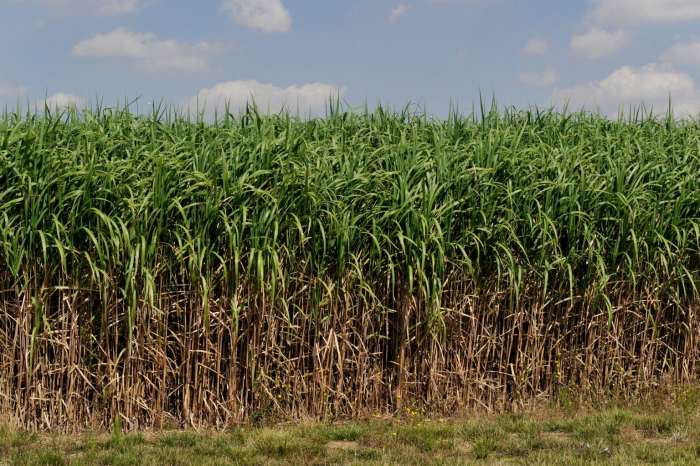



Overview
In the fight against climate change, innovative solutions are emerging to address the global challenge of rising greenhouse gas levels in the atmosphere. The UK Centre for Ecology & Hydrology (UKCEH), in partnership with Aberystwyth University and others, is at the forefront of this research. Using Campbell Scientific's cutting-edge eddy-covariance systems, UKCEH is spearheading a project to monitor CO2 absorption by different crops, with a primary focus on the versatile elephant grass (miscanthus).
The Challenge
The pressing issue of increasing atmospheric greenhouse gas concentrations demands a comprehensive understanding and mitigation of their impact on global warming. The challenge lies in finding sustainable solutions that actively contribute to reducing atmospheric CO2 levels while maintaining energy security and the rural economy.
The Solution
UKCEH, armed with Campbell Scientific's advanced eddy-covariance systems, has started to monitor and study CO2 absorption from the atmosphere by crops. Deployed IRGASON® open-path systems, coupled with an array of energy-balancing sensors and other precision instruments, allows for in-depth analysis of the carbon-capture capabilities of different food and energy crops.
The project’s primary focus is on elephant grass, a large crop harvested annually. Its primary use is as a biomass fuel in power stations, but it has uses in many other products as the world moves from petrochemicals toward a sustainable bioeconomy. Combining biomass power generation with innovative carbon-capture processes is under development in the UK and globally. This will allow CO2 captured from power generation to be efficiently locked underground, offering a more sustainable and secure energy system, which may have the potential to reduce atmospheric CO2 levels when deployed at scale.
An adjacent field featuring a cereal crop serves as a comparative study for evaluation and comparison of carbon-capture rates during and after land use change from conventional agriculture to biomass crops. The experiment is designed to span several years, providing valuable insights into the long-term effectiveness of these environmentally focused land-use practices.
The Benefits
- Environmental Impact: UKCEH's research aims to contribute significantly to the evidence base for reducing atmospheric greenhouse gas levels, particularly CO2. By studying crop carbon‑capture capabilities, the project provides insights into sustainable agricultural practices that are urgently required to mitigate the worst impacts of human-caused climate change.
- Renewable Energy: Elephant grass, with its remarkable growth and biofuel potential, emerges as a promising renewable energy source. The carbon sequestration potential of energy crops provides a model for fossil fuel replacement and for low-carbon or even carbon-negative electricity generation when combined with carbon capture and storage.
- Biodiversity Preservation: The comparative study with cereal crops not only contributes to understanding carbon capture but also sheds light on the overall ecological impact of different crops. This knowledge will guide future agricultural practices for enhanced biodiversity.
- Data-Driven Decision-Making: The Campbell Scientific suite of monitoring equipment ensures accurate and reliable data collection. The insights gathered will empower scientists and policymakers to make informed decisions regarding sustainable agriculture and the most effective land-based solutions for capturing atmospheric carbon to mitigate the impacts of climate change.
In conclusion, the collaboration between UKCEH and Campbell Scientific exemplifies a synergistic effort toward a greener, more sustainable future. By harnessing the power of nature and cutting-edge technology, this research project serves as a beacon of hope in the battle against climate change, offering tangible solutions and inspiring further innovation in the environmental sciences.
Note: The work was conducted as part of the PBC4GGR: Perennial Biomass Crops for Greenhouse Gas Removal project, funded by the UK's Biotechnology and Biological Sciences Research Council.
Case Study Summary
Application
University-based ecology and hydrology researchLocation
United KingdomProducts Used
IRGASON CR1000X CS310 CS451 HFP01SC-L HMP155A-L SI-111 SN500SS SOILVUE10 VOLT116Participating Organisations
UK Centre for Ecology & Hydrology (UKCEH), Aberystwyth UniversityMeasured Parameters
Crop CO2 absorption from the atmosphereView the PDF